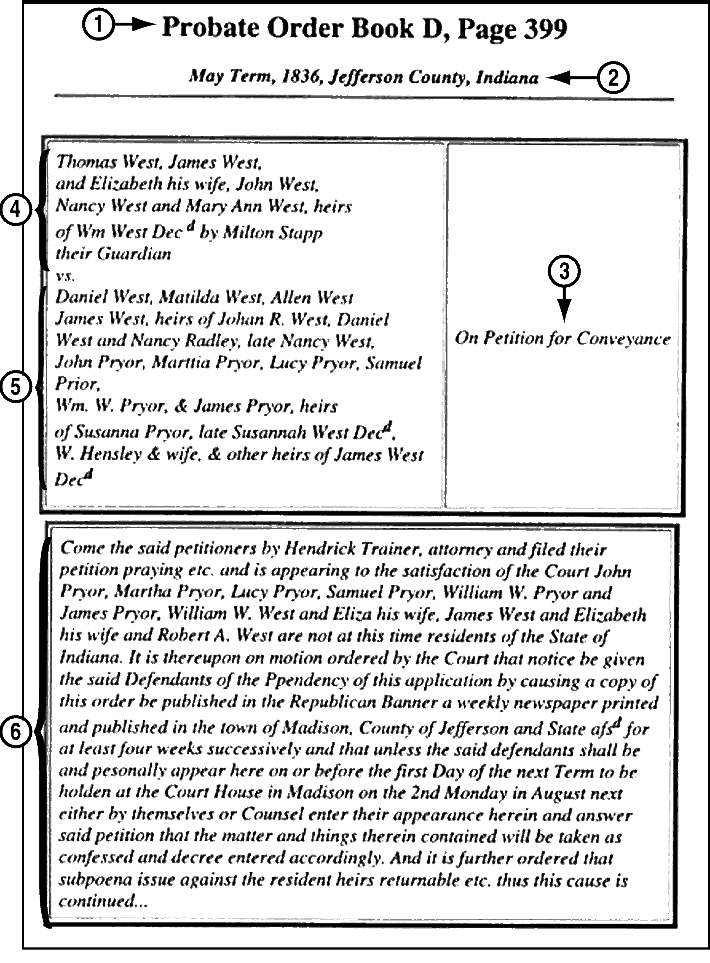
| 1. |
Number and page of the Order Book
|
| 2. |
Court term and place
|
| 3. |
Type of action
|
| 4. |
Names of the petitioners
|
| 5. |
Names of the defendants
|
| 6. |
Description of action
|
|
from Jefferson County, Indiana 
|
